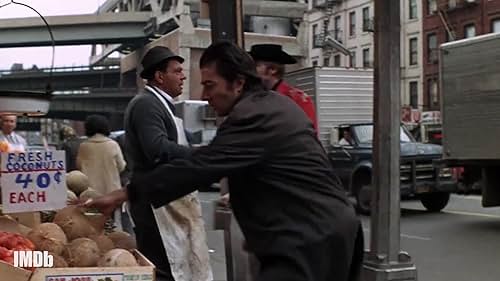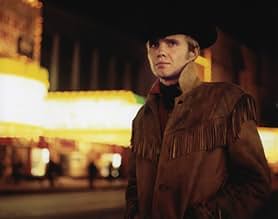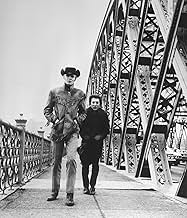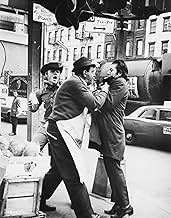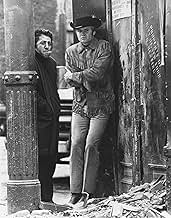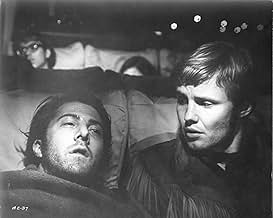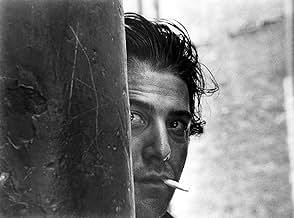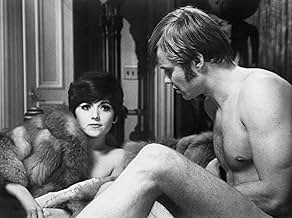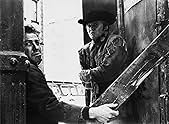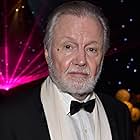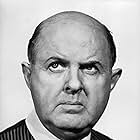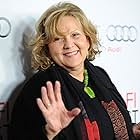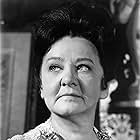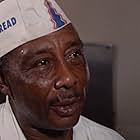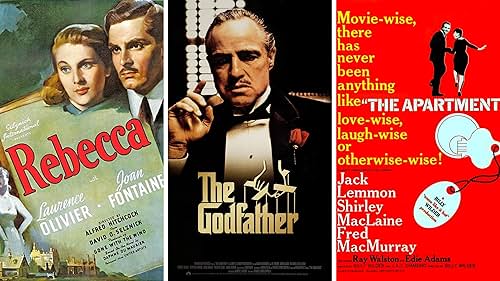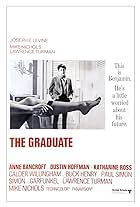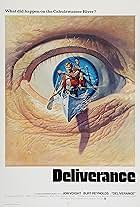A naive hustler travels from Texas to New York City to seek personal fortune, finding a new friend in the process.A naive hustler travels from Texas to New York City to seek personal fortune, finding a new friend in the process.A naive hustler travels from Texas to New York City to seek personal fortune, finding a new friend in the process.
- Won 3 Oscars
- 28 wins & 16 nominations total
Gilman Rankin
- Woodsy Niles
- (as Gil Rankin)
- Director
- Writers
- All cast & crew
- Production, box office & more at IMDbPro
Best Picture Winners by Year
Best Picture Winners by Year
See the complete list of Best Picture winners. For fun, use the "sort order" function to rank by IMDb rating and other criteria.
Storyline
Did you know
- TriviaBefore Dustin Hoffman auditioned for this film, he knew that the all-American image that he carried after "The Graduate" could easily cost him the job. To prove that he could play Rizzo, he asked the auditioning film executive to meet him on a street corner in Manhattan. He dressed in filthy rags. The executive arrived at the appointed corner and waited, barely noticing the "beggar" not 10 feet away who was accosting people for spare change. The beggar finally walked up to him and revealed his true identity.
- GoofsCeilingless set and lighting equipment can be briefly seen in several shots in Cass' bedroom.
- Quotes
Ratso Rizzo: I'm walking here! I'm walking here!
- Alternate versionsABC edited 25 minutes from this film for its 1974 network television premiere.
- ConnectionsFeatured in V.I.P.-Schaukel: Episode #2.2 (1972)
Featured review
This is the sort of movie that would get a minor, unremarkable release in a couple of cities, lots of plaudits, and largely ignored by audiences today. In 1969, though, it went very wide in its rollout release and made $44 million, making it the third biggest movie of the year, just behind The Love Bug and just ahead of Easy Rider. The movie industry was in the middle of a tumultuous change, and both Midnight Cowboy and Easy Rider were two major epicenters of that change. Famous for being the only film to win Best Picture while also rated X (knocked down to an R without cuts two years later), it treated sex explicitly in what was a daring fashion at the time. That shock value is long since gone, though, and what's left is an interesting though not entirely engrossing story of loneliness.
Somewhere between Fritz the Cat's cynical look at 60s counter-culture and Martin Scorsese's and Paul Schrader's look at isolation and madness in the sewer of New York City that was Taxi Driver lies Midnight Cowboy. Joe Buck (Jon Voight) is a self-proclaimed hustler (hustler's don't usually self-proclaim this, Buck) who decides to leave his home in Texas for a life of bedding older, rich women in New York City. His past is told in brief flashbacks and a couple of dream sequences that paint a portrait of a young man attached to his grandmother, Sally (Ruth White), after his mother abandoned him at her house, who found some connection with a young woman Annie (Jennifer Salt) which ends in tragedy when she's taken away by police, and who returned from a stint in the army with no connections left (reading a summary of the novel, it seems like all of this is told in more precise detail in the source material by James Leo Herlihy). Detached from anything, he seeks a better life in an exotic new place where he can live on his own terms: purely through his senses.
It's quickly evident that he's way out of his depth, knowing nothing of the city, how older, richer women want to be treated or approached, or how to hold his own in any confrontation. It's a hard road of education that begins when he picks up a woman, Cass (Sylvia Miles), who ends up getting money from him at the end of their sexual encounter instead of her paying him. Things get worse when he meets up with Rico "Ratso" Rizzo (Dustin Hoffman), a cripple of a conman who quickly bilks Joe out of $20, leaving Joe penniless, quickly homeless, and without a friend in the world. It's through happenstance that Joe meets Rizzo again, attaching himself to the smaller man in an effort to get back his money by forcing Rizzo to be his manager.
So begins the core relationship of the film: two lost men finding each other around 42nd street in New York. John Schlesinger, an Englishman and the film's director, wanted to bring to life what he saw on that strip of rundown New York, and as a time capsule for a dilapidated section of a failing city the film succeeds best. The hunger for success, the closeness to wealth, and the desperation for any kind of connection, manifested in the burgeoning relationship between Rizzo and Joe, is palpable and wonderfully realized on screen. However, the actual two characters I don't find particularly compelling which, I think, is where my resistance the film's, say, charms comes from.
Joe Buck is an idiot, and he's kind of hard to watch. Rizzo is a piece of trash who seems to only attach himself to Buck because he's falling apart physically and knows he can't survive on his own much longer. When Buck finds him again at the diner, confronting him for his $20, Rizzo looks like he's given up on life, staring blankly out the window, and his initial reaction to seeing Buck is actually a happy one like he's thinking that he's glad to meet someone who knows him, no matter who. I'll say that the pair are well-drawn, but I just don't find them the most compelling to pull on this narrative. They're tragic figures that are both so pathetic in their own way as to minimize the tragedy. There's no strength or intelligence in either of them. There's desperate stupidity in Joe and weak cunning in Rizzo.
Still, the journey is fascinating with the showstopper being an Andy Warhol-esque party that Joe gets invited to because of his unique look. It's the high-end bohemian side of the life that flaunts its own wealth in the faces of the lesser people, and it's obvious that Rizzo feels like he's being made fun of every time he gets interviewed, even though he shoving salami down his pants in order to find some food to last for a few weeks. Joe ends up getting his first successful score with the socialite Shirley (Brenda Vaccaro), getting paid $20 after a night of lovemaking that gets started slow when Joe can't perform (probably because he's concerned with Rizzo's health after Rizzo fell down a flight of stairs). Desperation kicks in mixed with Joe's sense of loyalty to his only friend, and he gives up the second step of his new life as a hustler to rob an older man and get the money to take Rizzo down to Miami.
That the film begins and ends with bus rides, both towards supposed points of freedom and wealth, is interesting, and that both end up being empty in their own way is obviously intentional. There's no greatness in the future for someone like Joe Buck. Just misery and death, although, it's kind of his own choice.
The prevalence of religious iconography is mostly subtly placed (there's Joe's early meeting with a zealot on his room that's obviously different), but there are pictures of Jesus in the flashbacks in Texas as well as sitting above Rizzo's bed as he lay dying. These are obviously intentional, and I kept thinking of how Joe had completely rejected all attachment he had before, and how those attachments were all material, centered around specific people (his grandmother and Annie). I seriously doubt that Schlesinger was trying to say anything positive around religion, so I'm guessing that they're meant to be empty symbols ("Where is your God now?" sort of stuff), but I also find it interesting that Rizzo, the one closest to death, is the only one who actually talks about religion ever. It's only once, and he talks about how his sins are between him and his confessor who he obviously doesn't go to. These are people without religion, who are lost in the modern world, who have no support otherwise, and end up just being miserable materialists. I don't think Schlesinger was intentionally calling materialism empty, but that does seem to be the implication.
So, there's a lot to chew on. The film was obviously made from a well-written novel, and the adaptation by Waldo Salt does a good job of distilling down a large work into a smaller film. I really appreciate the use of montage in flashbacks and, in particular, the dream sequence showing Annie taken away. It doesn't provide the literal details of what happens, but it's enough emotional truth to get the sense of what drove Joe away from Texas. I just cannot get invested in either main character. They are alternately too dumb and too pathetic to want to see succeed, especially since their whole vision for a life of plenty is to become a gigolo and a pimp.
Somewhere between Fritz the Cat's cynical look at 60s counter-culture and Martin Scorsese's and Paul Schrader's look at isolation and madness in the sewer of New York City that was Taxi Driver lies Midnight Cowboy. Joe Buck (Jon Voight) is a self-proclaimed hustler (hustler's don't usually self-proclaim this, Buck) who decides to leave his home in Texas for a life of bedding older, rich women in New York City. His past is told in brief flashbacks and a couple of dream sequences that paint a portrait of a young man attached to his grandmother, Sally (Ruth White), after his mother abandoned him at her house, who found some connection with a young woman Annie (Jennifer Salt) which ends in tragedy when she's taken away by police, and who returned from a stint in the army with no connections left (reading a summary of the novel, it seems like all of this is told in more precise detail in the source material by James Leo Herlihy). Detached from anything, he seeks a better life in an exotic new place where he can live on his own terms: purely through his senses.
It's quickly evident that he's way out of his depth, knowing nothing of the city, how older, richer women want to be treated or approached, or how to hold his own in any confrontation. It's a hard road of education that begins when he picks up a woman, Cass (Sylvia Miles), who ends up getting money from him at the end of their sexual encounter instead of her paying him. Things get worse when he meets up with Rico "Ratso" Rizzo (Dustin Hoffman), a cripple of a conman who quickly bilks Joe out of $20, leaving Joe penniless, quickly homeless, and without a friend in the world. It's through happenstance that Joe meets Rizzo again, attaching himself to the smaller man in an effort to get back his money by forcing Rizzo to be his manager.
So begins the core relationship of the film: two lost men finding each other around 42nd street in New York. John Schlesinger, an Englishman and the film's director, wanted to bring to life what he saw on that strip of rundown New York, and as a time capsule for a dilapidated section of a failing city the film succeeds best. The hunger for success, the closeness to wealth, and the desperation for any kind of connection, manifested in the burgeoning relationship between Rizzo and Joe, is palpable and wonderfully realized on screen. However, the actual two characters I don't find particularly compelling which, I think, is where my resistance the film's, say, charms comes from.
Joe Buck is an idiot, and he's kind of hard to watch. Rizzo is a piece of trash who seems to only attach himself to Buck because he's falling apart physically and knows he can't survive on his own much longer. When Buck finds him again at the diner, confronting him for his $20, Rizzo looks like he's given up on life, staring blankly out the window, and his initial reaction to seeing Buck is actually a happy one like he's thinking that he's glad to meet someone who knows him, no matter who. I'll say that the pair are well-drawn, but I just don't find them the most compelling to pull on this narrative. They're tragic figures that are both so pathetic in their own way as to minimize the tragedy. There's no strength or intelligence in either of them. There's desperate stupidity in Joe and weak cunning in Rizzo.
Still, the journey is fascinating with the showstopper being an Andy Warhol-esque party that Joe gets invited to because of his unique look. It's the high-end bohemian side of the life that flaunts its own wealth in the faces of the lesser people, and it's obvious that Rizzo feels like he's being made fun of every time he gets interviewed, even though he shoving salami down his pants in order to find some food to last for a few weeks. Joe ends up getting his first successful score with the socialite Shirley (Brenda Vaccaro), getting paid $20 after a night of lovemaking that gets started slow when Joe can't perform (probably because he's concerned with Rizzo's health after Rizzo fell down a flight of stairs). Desperation kicks in mixed with Joe's sense of loyalty to his only friend, and he gives up the second step of his new life as a hustler to rob an older man and get the money to take Rizzo down to Miami.
That the film begins and ends with bus rides, both towards supposed points of freedom and wealth, is interesting, and that both end up being empty in their own way is obviously intentional. There's no greatness in the future for someone like Joe Buck. Just misery and death, although, it's kind of his own choice.
The prevalence of religious iconography is mostly subtly placed (there's Joe's early meeting with a zealot on his room that's obviously different), but there are pictures of Jesus in the flashbacks in Texas as well as sitting above Rizzo's bed as he lay dying. These are obviously intentional, and I kept thinking of how Joe had completely rejected all attachment he had before, and how those attachments were all material, centered around specific people (his grandmother and Annie). I seriously doubt that Schlesinger was trying to say anything positive around religion, so I'm guessing that they're meant to be empty symbols ("Where is your God now?" sort of stuff), but I also find it interesting that Rizzo, the one closest to death, is the only one who actually talks about religion ever. It's only once, and he talks about how his sins are between him and his confessor who he obviously doesn't go to. These are people without religion, who are lost in the modern world, who have no support otherwise, and end up just being miserable materialists. I don't think Schlesinger was intentionally calling materialism empty, but that does seem to be the implication.
So, there's a lot to chew on. The film was obviously made from a well-written novel, and the adaptation by Waldo Salt does a good job of distilling down a large work into a smaller film. I really appreciate the use of montage in flashbacks and, in particular, the dream sequence showing Annie taken away. It doesn't provide the literal details of what happens, but it's enough emotional truth to get the sense of what drove Joe away from Texas. I just cannot get invested in either main character. They are alternately too dumb and too pathetic to want to see succeed, especially since their whole vision for a life of plenty is to become a gigolo and a pimp.
- davidmvining
- Jul 27, 2023
- Permalink
Details
- Release date
- Country of origin
- Official site
- Languages
- Also known as
- Cowboy de medianoche
- Filming locations
- Production companies
- See more company credits at IMDbPro
Box office
- Budget
- $3,600,000 (estimated)
- Gross US & Canada
- $44,785,053
- Gross worldwide
- $44,802,859
- Runtime1 hour 53 minutes
- Color
- Sound mix
Contribute to this page
Suggest an edit or add missing content


